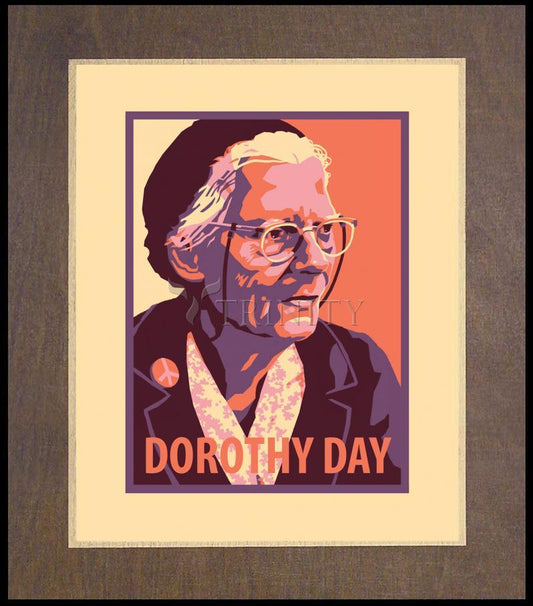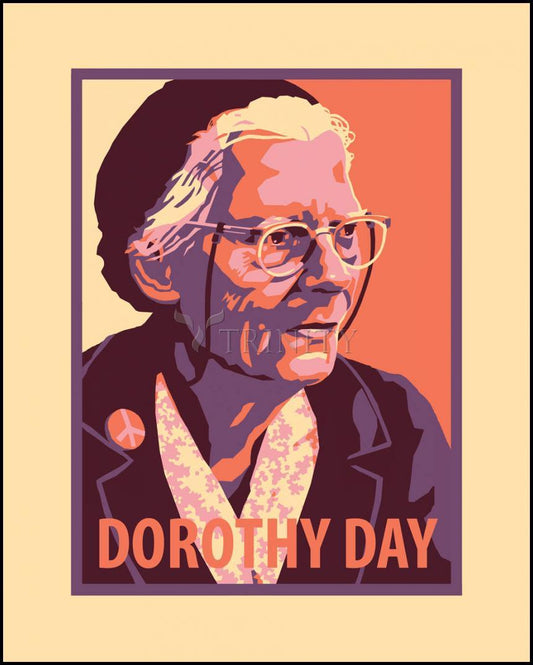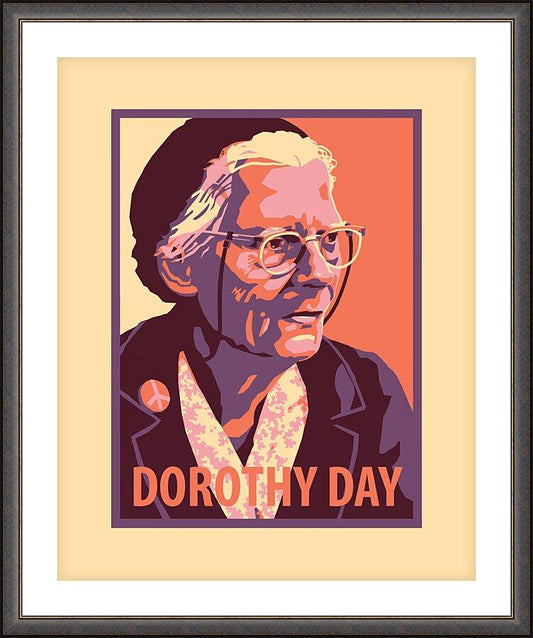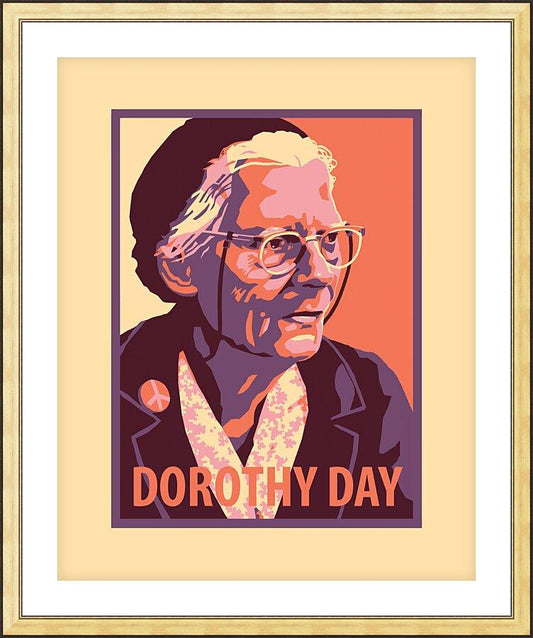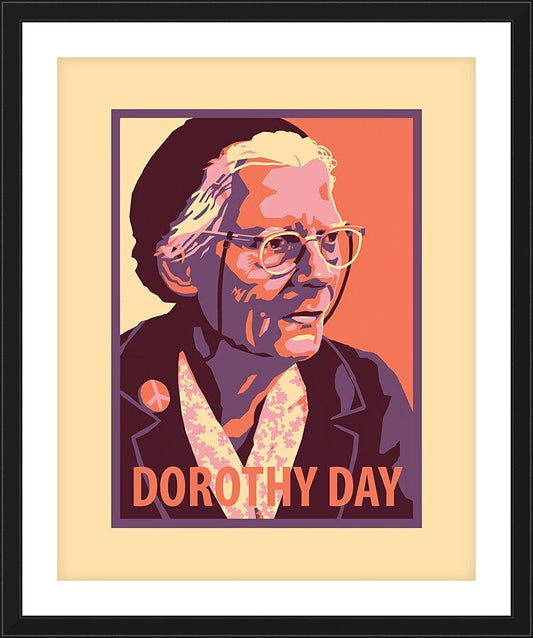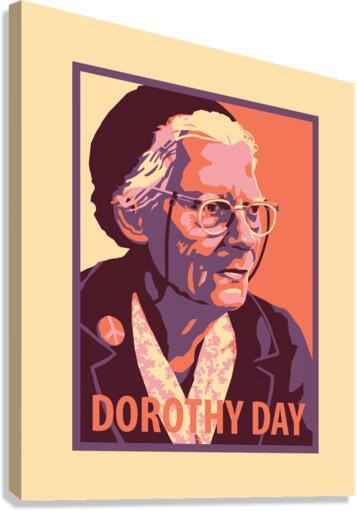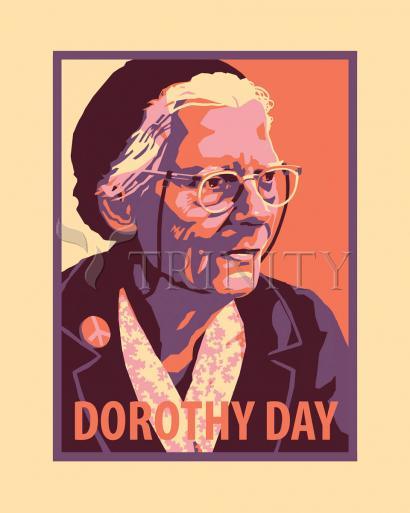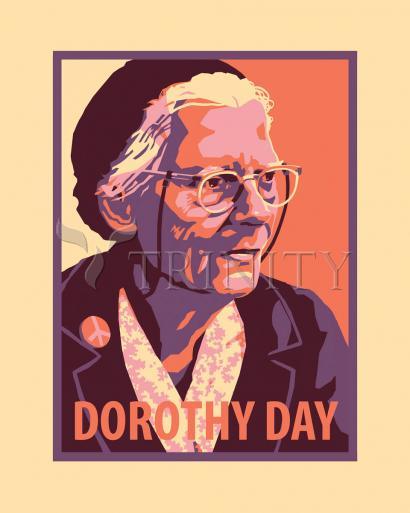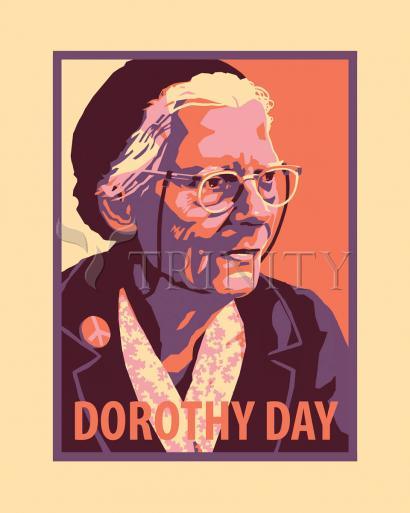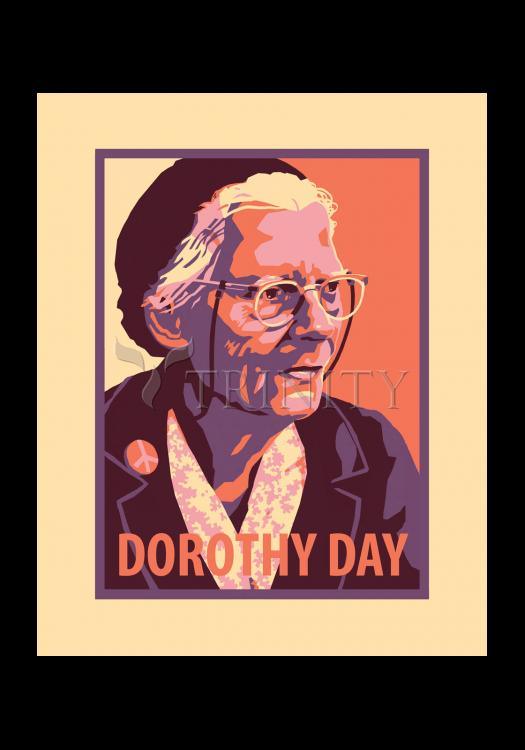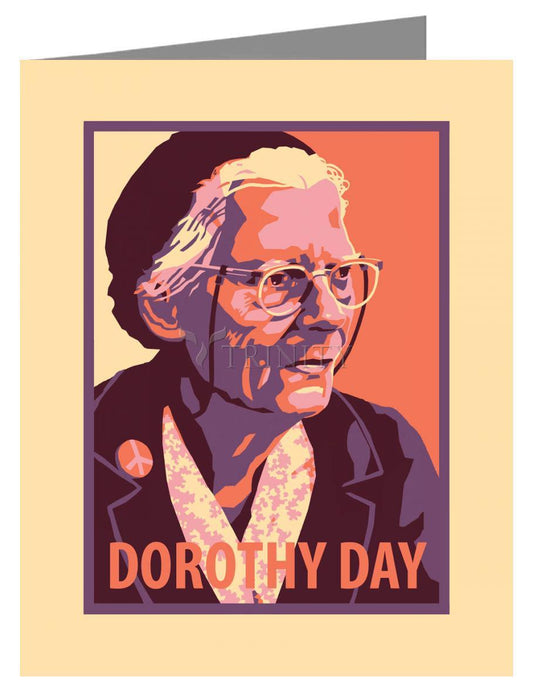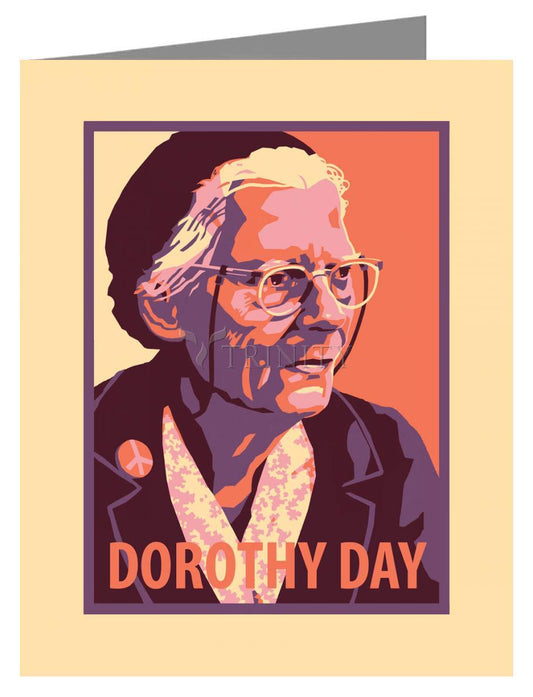Her Last Years:
In 1970, as Dorothy was speaking in Detroit, a nurse in the audience pointed out that Dorothy needed medical attention. At age seventy-three, Dorothy suffered from shortness of breath that came from water in her lungs, hardening of the arteries, and an enlarged heart. Medicine somewhat relieved the condition, but her heart was failing.
Although Dorothy tired easily, she accompanied her close friend Eileen Egan on a world tour and then on a journey to Russia in the next year. In India, she met Mother Teresa and spoke to the novice sisters about going to prison for the sake of the Gospels. Dorothy was widely known by this time, and many groups honored her for the goodness of her life and her work on behalf of peace and justice. But the traveling, and even the honors, took a further toll on her body.
In 1973, at age seventy-six, Dorothy joined Cesar Chavez and the United Farm Workers in California's San Joaquin Valley for a nonviolent demonstration against the Teamsters Union (IBT). She was arrested with other protesters and jailed for ten days. This was Dorothy's last imprisonment.
Although Dorothy needed long periods of rest, she continued to struggle with the rapid pace of change and the erosion of traditional practice in the church and among the followers of the movement. She chided herself as an old fogy, but lamented that so many young workers seemed to turn away from sustaining religious practices. Perhaps reliving her own youthful searching piqued her sadness. Her faith had challenged and comforted her, but the exodus of so many priests and religious distressed her.
Her speech before the Eucharistic Congress in Philadelphia on 6 August 1976 was her last. Dorothy departed from her prepared text and spoke from the heart about her love of God, about the necessity of taking that love into all creation, and about the church that gave her the life of the Spirit. True to form, she reminded the assembly that the day was Hiroshima Day and that acts of destruction directly opposed God who "gave us life, and the Eucharist to sustain our life." (Miller, Dorothy Day, p. 513)
Shortly after this talk, Dorothy suffered a heart attack. Virtually confined to bed, she wrote a few letters when her strength permitted. Her daughter and grandchildren made frequent visits. She died in the early evening of 29 November 1980 with Tamar at her side.
So many people came to her funeral at Nativity Church in New York City that many had to stand outside on the sidewalk. During her life, Dorothy Day refused to let people "dismiss her as a saint." (Eileen Egan, Dorothy Day and the Permanent Revolution, p. 19)
At her death, many of her admirers used the word openly. A "permanent revolution" had been initiated by Dorothy's leadership, grounded in the Sermon on the Mount for which she had "prayed, spoken, written, fasted, protested, suffered humiliation and gone to prison." (Eileen Egan, Dorothy Day and the Permanent Revolution, p. 25)
Dorothy's Spirituality:
Two broad spiritual streams came together in Dorothy Day's character, and each stream contributed to her spirituality. As an American born into a Protestant family that valued education and literacy, she was a pragmatist, a worker, and a woman of action. After her conversion, these traits united with the traditions of Roman Catholicism: the teachings of the papal social encyclicals, the sacramental and liturgical life and sense of sacramentality, and the devotion to and imitation of the saints and mystics. Dorothy's love of the Scriptures came from her Protestant roots and predated the widespread use of the Bible by lay Catholics.
Characteristics:
Dorothy Day's spirituality is marked by these characteristics:
Love of Scripture: Throughout her life, Dorothy received comfort and inspiration from the Bible, especially the Psalms, the Pauline writings, and the Gospels. They were part of her daily meditation, and scripture verses and images spontaneously wove themselves into her writings. The example and teachings of Christ were at the heart of her spirituality.
Solidarity with the Poor: In the Catholic Worker community, Dorothy shared her daily energies with and on behalf of poor people. Her writings, direct practice of the works of mercy, and her own voluntary poverty bound her to poor, homeless, sick, and desperate people.
Personalism:
Dorothy loved doing works of mercy because they allowed her to take direct and immediate action for her brothers and sisters in Christ and against the ills of society that robbed them of their life, freedom, and dignity. Her engagement with other people flowed from her wholeness as a person; her heart and mind were cultivated through her reading, reflection, conversations, writing, and worship. She wanted the fullness of life for herself and every person.
Prophetic Witness:
By her public words and work, Dorothy sought to imitate Christ's witness against injustice, even when such witness seemed folly. Like Christ, she was critical of the powers and structures of injustice and endured ridicule and opposition for her witness.
Peacemaking:
A steadfast pacifist, Dorothy opposed all wars and the use of force and violence to solve human problems. She practiced and promoted human dignity with the spiritual weapons of prayer, fasting, almsgiving, civil disobedience, and works of amendment. Like Jesus, the woman at the well, and St. Paul, she took her message to the people in the streets.
A Sacramental Sense:
Dorothy looked to sacramental celebrations, especially the Eucharist, for daily spiritual sustenance, and she saw the world, its people and all of nature, to be full of God's grandeur and love as well.
Gratitude:
In good times and in bad, Dorothy had a keen sense of appreciation and learned to trust in the providence of God. Dorothy regularly expressed gratitude not only to God but to those around her and to The Catholic Worker's readers.
Dorothy for Today:
Although Dorothy spurned the suggestion that she was a saint, she took seriously the importance of becoming one; saintly people could heal the ills of this world. God created the Mystical Body of Christ for holiness, wholeness, and sanctity. Jesus took on humanity to show people how to be godly through acting justly, loving tenderly, and walking humbly. The Holy Spirit continually invites all Christians to holiness.
Dorothy Day provides a contemporary model of the qualities of holiness: solidarity with and service to God's poor, promoting and being willing to suffer for justice, acting in charity, living in community, integrating faith and action through prayer, sacred ritual, and meditation. Dorothy Day may not always be a comfortable companion on the spiritual journey, but she will certainly be a wise, caring, and challenging one.
"Excerpts from Praying With Dorothy Day by James Allaire and Rosemary Broughton



